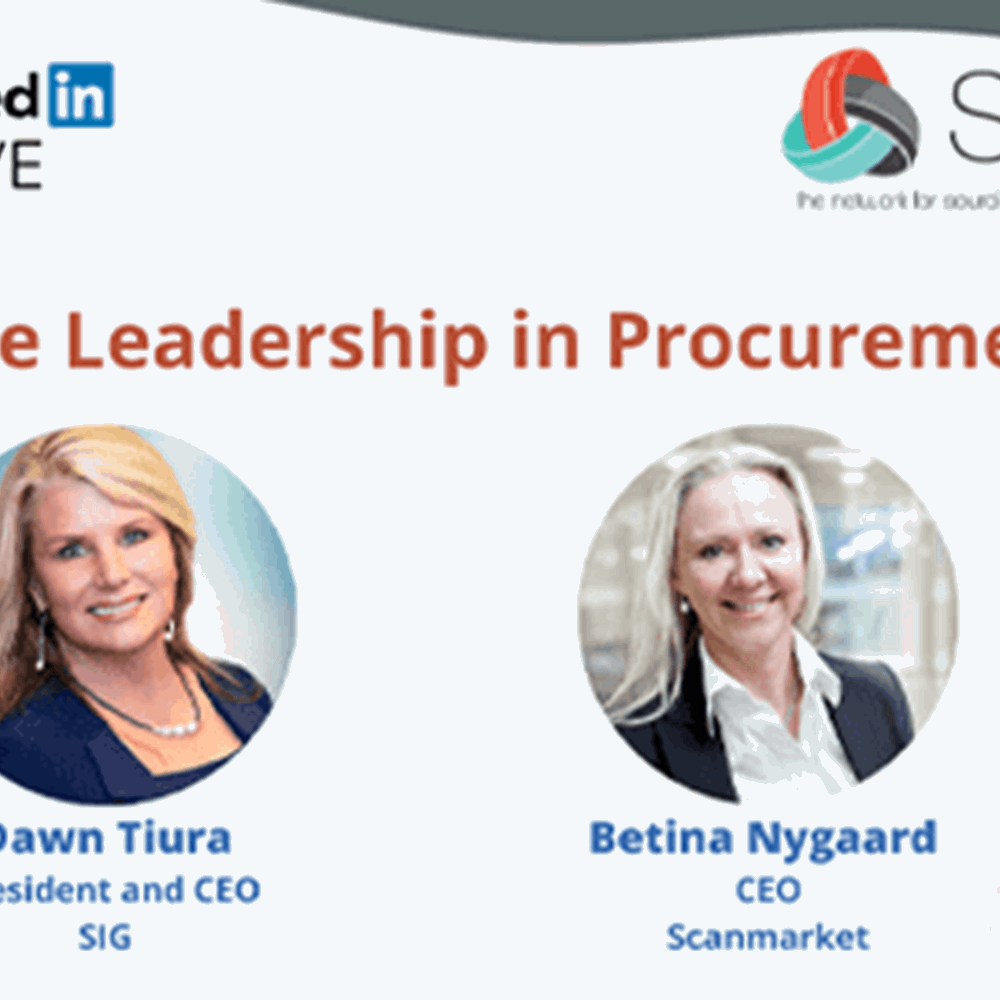Your employees helped you navigate a historic disruption. Now they deserve your investment in their personal and professional development.
Everyone wants to “get back to normal.” I am anxious to safely hug friends and family, talk without the muffling of a mask, enjoy a meal in a restaurant, and travel abroad again. While the saying “get back to normal” is mostly a turn of phrase, going back to normal in the professional world is impossible.
Procurement professionals are always preparing for localized Black Swan events, like natural disasters, geopolitical conflicts, cybercrimes, and such. But the impact of COVID is unique in its size and scope. What started as an epidemic in late 2019 quickly spread into a pandemic, consuming the entirety of 2020, and it’s still rearing its ugly head in the world.
Leaders in all sectors need to realize that the world as we know it has changed, and your employees are holding company leadership accountable. If you want to keep the talent you have and be an employer of choice to attract new talent, then it’s vital to stop, listen, and learn from the people who help make your business successful.
As we look ahead, here are my recommendations to build a more inclusive, resilient, and agile workforce.
Back to the Office ... or Not
Now that vaccines are making inroads and people can safely congregate again, some look forward to going back to the office full time, whilst others, after a year of working from home, don’t want a full-time return to the office.
Before COVID, there was in many companies a conservative attitude about working from home. It was accepted on occasion, but not wholly embraced. At Scanmarket, we will not return to a situation where people have to be at the office five days a week. Instead, we will pivot to a hybrid, part-time office model.
I’ve witnessed first-hand how working from home contributes to a healthier work-life balance for the Scanmarket team. It allows more time to focus and better immersion into the work. Our people seem to be less stressed and more balanced. And that’s good for Scanmarket on the whole.
The Hybrid Remote Workplace
Notably, adopting a remote work or hybrid remote work model creates a more inclusive workplace for all employees. The lack of a commute reduces stress, especially for primary caregivers of children It’s also a better situation for those who don’t thrive in the open office floor plan settings. And it’s a step in the right direction for people with physical disabilities who have difficulty navigating outdated office layouts that limit their mobility.
Every leader will need to make a decision that best serves their business and people, but it should be based on data. Were your employees productive and agile during work from home? Do they report better work-life balance? Consider surveying your workforce on their thoughts and feelings so you can make a data-based decision, just as you do for a sourcing event.
Investing in Your Team’s Growth Will Pay Dividends
When it comes to the future of the industry, the function is changing more rapidly than the talent can be developed. This is compounded by the fact that few colleges and universities offer sourcing and procurement degrees.
Today, a Procurement role requires hard skills in areas like data and analytics, planning and forecasting, and strategic thinking, all of which can be trained or taught. However, soft skills like relationship building, communications, and influencing are personality traits that are critical to the function. Combined, these are the skills needed to build a successful procurement leader.
Developing these skills in-house is good for company growth, helps your team become more agile, and the critical thinking skills they learn will increase resiliency. Not to mention, it will reduce costly employee turnover. For example, a Lumina Foundation study found that Cigna Corporation invested in tuition assistance for an Educational Reimbursement Program (ERP). It resulted in an ROI of 129%. For every dollar invested in ERP, Cigna got back $1 and avoided an additional $1.29 in talent management costs.
Mentoring
For employees who want to pursue a leadership role in the organization, pair them with senior employees in sponsorship or mentorship programs. For those who want to grow their tactical skill sets, encourage their participation in certification or post-graduate programs. Education and mentoring are extremely important factors for developing your organization, but it cannot stand alone. You have to make sure that you create a company culture where people WANT to upskill and where they are allowed to make mistakes. We learn from our mistakes and mistakes make us better. We need to create a safe environment for our staff to improve and get better.
One thing is clear, Procurement leaders need to pick up the pace to attract and retain skilled talent. Upskilling your employees provides a path to higher paying roles and leadership positions, which is good for employee morale and company growth.
Diversity in the Workplace
To promote diversity in upper management and leadership roles, it’s important for procurement leaders to provide their teams with the support and skills they need to be successful. It’s also important for leaders to play an active role to reduce the burnout, stress, and redundancies that employees say make their jobs more difficult and contribute to turnover.













